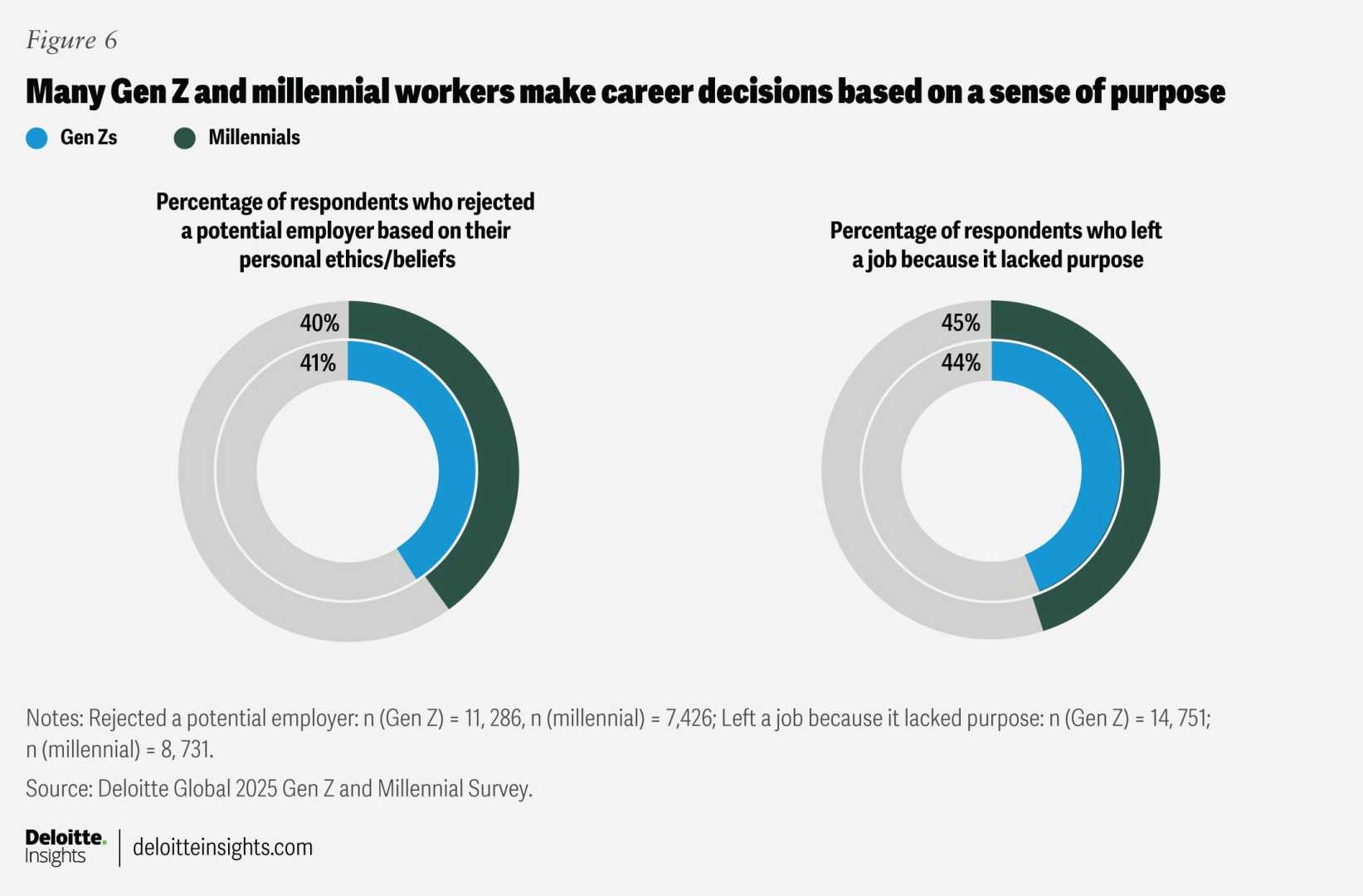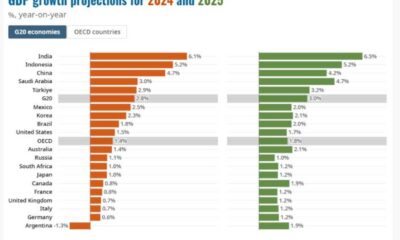Business
Gen Z Redefines Work: Career Minimalism Takes Over by 2025

NEW YORK, August 29, 2025 — A new report highlights how Generation Z is reshaping the workforce and redefining professional success in 2025. According to a Glassdoor study, younger workers are embracing a concept known as “career minimalism,” seeing their jobs mainly as a means to attain financial stability while pursuing passions outside of work.
The study reveals that a significant 68% of Gen Z respondents stated they would not pursue management roles without the incentive of better pay or a title. This marks a departure from previous generations, which typically viewed management as a prestigious career path.
Daniel Zhao, Glassdoor’s chief economist, noted that while there seems to be reluctance among Gen Z to enter management, data shows they are stepping into these roles at rates similar to millennials. Zhao suggests that the notion of “conscious unbossing” may play a role in how younger generations perceive traditional corporate structures.
Furthermore, the Glassdoor survey indicates that 57% of Gen Z currently engage in side hustles, compared to only 48% of millennials. Many Gen Zers view their primary jobs merely as a funding source for their passion projects, underscoring their search for fulfillment beyond the traditional nine-to-five framework.
During a recent interview, Zhao highlighted the complexities of this generation’s job market. “Many younger workers feel the job market isn’t working for them, making traditional career paths seem unviable compared to 10 or 20 years ago,” he said.
The report also points to a shift in the expectations of Gen Z employees when they enter managerial positions. Approximately 58% of them aim for more flexible work arrangements, like reduced hours in the summer, contrasting with only 39% among older managers.
Experts believe this emerging trend in Gen Z is rooted in their desire for work-life balance, emphasizing stability coupled with room for personal growth. As they navigate an evolving job market increasingly affected by technology and societal changes, these young individuals are crafting a new narrative around employment and fulfillment.
This shift toward career minimalism serves not only as a reaction to systemic barriers but also as a new benchmark for professional satisfaction and success. The long-term implications of these changes point toward a workforce that prioritizes well-being alongside productivity.












